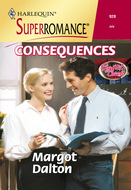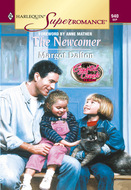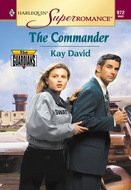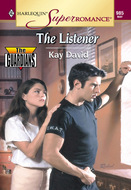Das Buch kann nicht als Datei heruntergeladen werden, kann aber in unserer App oder online auf der Website gelesen werden.
Buch lesen: "In Plain Sight"
“We can get married.”
Isabel’s jaw dropped as she turned to stare at Dan. “Married? How would it help to marry a total stranger?”
“It would give you a legal name. One that wouldn’t jump out at anyone searching a computer bank. Instead of Isabel Delgado, you’d be Bella Gibson. You can apply for credit cards and other forms of identification under that name.”
Isabel was silent. “Even if I agreed to this,” she said at last, “it’s not possible to get married without some proof of identification and citizenship, is it?”
“It’s possible,” he said calmly, “when my cousin’s the county clerk.”
She studied him, amazed to be having this conversation and even more astonished that she was actually considering his offer. At that moment another obstacle presented itself.
“This house is so small,” she said at last, her cheeks flaming. “And your children are in all the other bedrooms. If we’re supposed to be married…”
Dear Reader,
Almost ten years ago, Harlequin approached a number of authors with an exciting new idea. We were given the challenge of helping to create a central Texas town and ranching community, along with a host of exciting, heartwarming characters to populate this setting. The result was the 24-book CRYSTAL CREEK series, which has remained popular with readers since publication of the very first book in 1993.
As an author, I loved everything about writing the CRYSTAL CREEK books. So you can imagine my excitement when the Superromance editors suggested I might want to return to Crystal Creek with a new series of books. I could hardly wait! In Plain Sight, the beginning of the new miniseries, will bring back many of your old favorites. Bubba Gibson and Mary are here, still raising their ostriches, along with J. T. McKinney, Manny Hernandez, Howard Blake and Nora Slattery down at the Longhorn. More and more of the familiar townsfolk will pop up in the next two books, along with some newcomers you’re going to like, as well.
I loved making this nostalgic return to Crystal Creek. I hope you enjoy it as much as I did.
Warmest regards,
Margot Dalton
Crystal Creek titles by Margot Dalton
HARLEQUIN SUPERROMANCE
928—CONSEQUENCES.
940—THE NEWCOMER.
In Plain Sight
Margot Dalton
CONTENTS
CHAPTER ONE
CHAPTER TWO
CHAPTER THREE
CHAPTER FOUR
CHAPTER FIVE
CHAPTER SIX
CHAPTER SEVEN
CHAPTER EIGHT
CHAPTER NINE
CHAPTER TEN
CHAPTER ELEVEN
CHAPTER TWELVE
CHAPTER THIRTEEN
CHAPTER FOURTEEN
CHAPTER FIFTEEN
CHAPTER SIXTEEN
CHAPTER SEVENTEEN
CHAPTER EIGHTEEN
CHAPTER NINETEEN
CHAPTER TWENTY
CHAPTER ONE
ISABEL DELGADO was a precise, orderly person. She liked things to work the way they were supposed to, and objects to be stored in their proper places. At school she’d sometimes been accused of keeping the contents of her handbag in alphabetical order.
That was an exaggeration, but she did compartmentalize with care.
No messy rummaging for Isabel. She could put her hand instantly on a nail file, a pack of tissues or a library card.
So when it came time to plan her death, she embarked on the project with the same meticulous care.
Everything in her plan had to function smoothly, with no loose ends or messy slipups. Isabel realized all too well that good preparation was her only chance to achieve any possibility of life after death.
For weeks she planned her “fatal accident.” She’d driven around the Texas countryside north of San Antonio to scout the best possible locations, imagining the scenario, trying to anticipate anything that could go wrong.
She put an envelope full of cash, the diamonds she’d inherited from her mother and all her stock certificates into a safe-deposit box at a bank in San Antonio. Afterward she wondered how long it would be before she could safely slip back to the city and reclaim this small fortune.
The most time-consuming project of all was obtaining duplicates of her identification papers, getting everything reissued from birth certificate and social-security card to passport, marriage license and divorce papers.
A few weeks earlier when she had everything together, Isabel had driven to Abilene to deposit a bulky envelope containing the documents, along with a generous sum of cash, in a locker at the bus depot.
On the final two days her stomach was knotted with tension, and she was too excited to eat. But though she was almost faint with hunger, Isabel knew that in a few hours—after her “death” had been successfully accomplished—she would move onto Abilene, and from there embark on her new life.
The first thing she planned to do was eat an enormous meal, with cheesecake for dessert.
On a warm Friday evening in late September, she was finally ready.
For one last time she stood in the vast foyer of her father’s San Antonio mansion, dressed in a running suit of navy blue cotton, with white cross-trainers and a red terry-cloth headband, looking around at the kind of luxury that had been her heritage for all the twenty-seven years of her life.
Isabel Delgado was a true golden girl, and not just because of the enormous wealth and privilege she’d been born into. She was blond and tanned, slim and dainty, with the finely drawn, muscular frame of the dedicated runner. Her tanned skin, her French-braided hair, even the highlights in her hazel eyes were a rich golden-brown.
As a small child she’d been a source of pride to her father, but nowadays Pierce Delgado hardly ever came home, and her old friends were all busy with their growing families. Unless the police came here directly with the news of Isabel’s death, it could be a long time before anybody even noticed she was gone. Except for one person…
When Isabel realized how little impact the news of her death would have on almost anybody, she felt chilled and deeply sad.
If her sister, Luciana, had still been around, she’d care about Isabel. But their father’s anger and coldness had driven Luce away years ago. By now nobody even knew where she was, though Isabel often thought about her beautiful older sister.
“Well, goodbye, everybody,” Isabel said aloud to the silent house, bending to pick up her water bottle and a leather waist pack from the bottom of the stairs. “Hey, it’s been great.”
She left the house, locking the door carefully behind her, and ran down the walk to her little blue Mercedes convertible, which was sitting at the curb with the top rolled down.
Isabel got in, pushed a cassette into the player and looked back at the stately pile of cut limestone that was her father’s house, with its grounds so massive that the equally opulent homes of the neighbors were barely within view.
For the first time she had a stirring of doubt about her plan. But then she remembered the escalating dread of recent weeks, the sheer heart-stopping terror that pervaded most of her existence.
Her life was intolerable, and the fear had to stop. Nobody could live this way.
Isabel squared her shoulders, put the sleek little car into gear and headed down the street.
She drove northwest on the freeway leading out of San Antonio, then took an off-ramp and went up through Fredericksburg, deep into the heart of the Hill Country west of Austin.
Out here, far away from the city and the freeway, the summer evening was beautiful, though it was chilly enough that she was tempted to put the top up.
But that wasn’t part of the plan. On the off chance that somebody happened to see her car in the Hill Country and testify about it later, it was important for them to notice that the convertible top had been down as she drove.
So she turned up her jacket collar for warmth, enjoying the way the fading light spilled across the hills, and the mesquite and live oak trees rustled and whispered in the breeze.
Heavy clouds massed behind her to the south, threatening a rainstorm, but by the time that storm arrived, she would be well on her way.
Isabel smiled and tapped her fingers on the steering wheel in time to a country song, looking with pleasure at the countryside rolling by. She’d always loved the Hill Country.
Her mother, Pierce Delgado’s second wife, had been friends with the J.T. McKinney family at Crystal Creek, whose successful ranching and more recent wine-growing operation was one of the jewels of Claro County. Isabel had spent many of her summers there as a child. In fact, the family warmth and hospitality at the Double C ranch had been one of the best things in Isabel’s lonely childhood. The McKinneys gave her a view of a life so different from her own, with her absent father, brittle alcoholic mother and a half brother and half sister who were both almost a decade older and busy with adult lives of their own by the time Isabel entered adolescence. The memories brought a hot prickle of tears to her eyes.
But this was no time to give way to emotion. She had to stay cool and alert, or she’d never be able to pull the whole thing off.
North of Fredericksburg she turned off the highway and drove up a side road to park on a rocky outcropping, a lookout point high above the Claro River, known as Rimrock Park.
At this time of year the Claro was a lazy sparkle, reflecting the rich colors of the sunset. It gave no hint of the raging torrent it could become in the spring when it flooded and went thundering through the valley like a freight train, sweeping away everything in its path.
Isabel had selected this particular point because the banks narrowed here; the Claro was certainly deep enough to cover a car and had a current powerful enough to carry a body into the Colorado and on toward Lake Travis.
Also, there was a well-used picnic area below, about a hundred yards upriver on the other side. Even from that distance she could see a couple of families with little kids and pets, their food spread out on tables while a group of men nearby played horseshoes.
She drove her car forward on the lookout point, as far as she could without slipping over the edge and plunging into the water a hundred feet below. When she turned off the music, a clink of metal on metal from the game of horseshoes drifted up to her, along with the muffled shouts of children and barking of dogs.
The sweet everyday sounds seemed unbearably precious and reminded her painfully of everything she’d lost.
Isabel’s jaw set in determination. She drew off the terry-cloth headband and pulled on a navy baseball cap, tugging it low enough over her forehead to obscure most of her face.
Then she took her waist pack and wedged it firmly under the front seat. The leather pouch contained all her ID, including her passport and credit cards.
At first she’d been reluctant to include her passport, because it had been such a hassle to get the new one that now waited for her in that bus-depot locker in Abilene. But Isabel needed to make it look as if she’d been leaving the country and had accidentally driven her car over the cliff while taking one last look at the Claro River.
Probably she’d gone to some unnecessary effort, but the whole scene had to be completely believable.
After all, no one who was faking her own death would choose to sacrifice her social-security card, her passport, driver’s license and credit cards.
Time was running out. She had to do it now, while the people were still in the picnic ground and could attest to seeing a small blue car plunge into the river from the opposite cliffs.
Her hands began to tremble with nerves and she clenched them into fists, then checked her jacket pocket one last time to make sure she had her wad of cash and the bus ticket she’d bought in San Antonio. In her shoe, under her heel, she could feel the hard shape of the key to the locker in Abilene.
Finally she got out of the car and stood holding the door open.
One more time Isabel checked to make sure the leather pack was wedged under the front seat. For a moment she considered putting it in the glove compartment for safety, but decided that might look a little too staged.
Nervously she patted her pocket, the one containing her money and her ticket to a new life, then tugged the cap even lower over her eyes.
At last she reached inside to slip the car into neutral, gripped the door frame and began to push it toward the edge of the precipice. As soon as it went over the cliff among the scrub mesquite and cactus, she would set off down the road in the opposite direction from the way she’d come, like a jogger out for a run in the cool of the evening. In the unlikely event that anybody asked, she could say she’d already passed the lookout point and hadn’t seen a car there.
Her plan was to jog about four miles—an easy distance for Isabel—to the bus depot in Crystal Creek, which was the nearest small town. There she would use the ticket in her pocket to board a bus, ride up to Abilene, about a hundred miles away, and collect her stash of money and her ID.
She would have to lie low for a while in Abilene, of course, until she knew Eric had finally given up searching for her. Then she could devise some way to get safely out of the country. Maybe she’d try going to Mexico again, or to Canada…
But just as the front wheels of the Mercedes hung in space, ready to plunge over the cliff, one of the back wheels was blocked by a small boulder. Isabel pushed and sweated, trying with all her might to rock the little car free.
Suddenly she heard the sound of an approaching vehicle.
“Oh, hell,” she muttered, looking around wildly. “Now what?”
There was nowhere to hide among the scrub mesquite and boulders, and the sound was growing closer. In fact, it sounded like two vehicles, possibly a couple of kids on dirt bikes.
If somebody spotted her up here trying to push the car over the cliff, all her careful plans would be ruined. Worse than ruined, because Eric would know what she’d tried to do, and from now on he’d dog her movements even more relentlessly.
The man was bent on possessing her. If he couldn’t, he would surely kill her. And after this, nothing would stop him.
With a despairing sob, Isabel gave one great heave and finally sent the small vehicle over the edge. As it fell she closed her eyes and jumped into the void just behind it.
The next few moments seemed to take hours. She was conscious of space and weightlessness, of the sun blinding her and of the wind that tugged at her clothes and sang in her ears.
Then she was crashing down through tree branches and rustling leaves, rolling among thickets of brush that scratched her face and hands. At the same time she heard a mighty splash, followed by a chorus of startled cries from across the river.
Isabel lay facedown in the heavy brush, cradling her head in her arms like a woman awaiting a blow. Her chest heaved and her heart raced. She was gasping so hard that she was sure her breathing must be audible all the way across the river.
Gradually she began to realize her body was still in one piece and that, for the moment at least, she was safe. Through the screen of brush she could hear the people across the river, their voices clear and distinct on the evening air.
“It was a car!” somebody shouted. “A little blue car. I saw it just when it hit the water!”
“Was anybody in it?”
“I couldn’t tell,” the reply came as Isabel strained to hear, trying to calm her noisy breathing.
“Somebody call the fire department! Jimmy, get one of those trucks and drive downriver. See if you can find anybody in the water.”
Slowly her panic ebbed. Apparently the people on the opposite bank hadn’t noticed her body when she’d jumped off the cliff behind the car. And whoever had been driving up to the summit behind her wouldn’t have arrived in time to see her jump.
Isabel sat up and did a cautious assessment of her physical state.
She was covered with dirt, had a lot of scrapes and bruises, and was bleeding freely from a gash on her right arm where the jacket sleeve had been torn to shreds. Her face felt moist, and when she touched her cheek, her fingers came away red with blood.
“Damn,” she muttered, her thoughts racing. “Damn!”
It would be impossible to get on the bus in this condition without being noticed. Somehow she had to figure out a way to get herself cleaned up and find a change of clothes.
Maybe when darkness came, she could steal something from a farmer’s clothesline. But did anybody even use clotheslines anymore?
Isabel didn’t have a clue. She’d never done laundry in her life.
Meanwhile the confusion on the other side of the river seemed to be growing. She heard sirens approaching in the distance, then the frantic barking of a dog.
“Oh, God, I need to get away from here,” she said, looking around wildly.
The witnesses clearly weren’t sure the car had been occupied when it went into the water. But even if nobody had seen her falling behind it, they would still come over here and search the riverbank in case a driver or passengers had fallen out while the car was in flight and were lying injured in the bushes.
Shivering in the evening chill, Isabel pulled off her jacket, gripped the hem between her teeth and tore a ragged strip from the front to bind her arm, then twisted the length of cloth with a stick until the bleeding stopped.
She wondered if her arm needed stitches and how she was going to get proper medical attention. But when she removed her makeshift tourniquet, the flow of blood was just a trickle, already clotting.
The sky darkened, and Isabel looked up to see clouds massing overhead. Lightning split the air, and a low rumble of thunder came shuddering across the hills. At the same time, raindrops began to land on her face and patter in the bushes nearby.
The rain was a stroke of good luck, Isabel realized. A heavy rainfall would soon wash away any trace of her presence on the riverbank, even if they came and searched with dogs.
But she had to find some shelter. Maybe she could pay somebody to—
With sudden, heart-stopping terror, she paused and looked down at her torn jacket. For the first time she realized that not just the sleeve but most of the jacket’s right front, including the pocket, had been completely torn away.
Slowly, numb with dread, Isabel tried to make her sluggish mind work out what had happened.
As she’d pushed the car, her jacket must have caught on it somewhere, maybe the door or the rear bumper. Her pocket had been ripped free, possibly even carried into the water with the car.
And that meant her money and her bus ticket to Abilene were both gone.
She whimpered, then buried her face in her hands and struggled to compose herself.
Panic wasn’t going to accomplish anything. She had to think, and there was no time to waste. Emergency vehicles were arriving on the other side of the river, and the shouts and calls of the searchers intensified, though their words were harder to make out now that rain had begun to fall heavily.
She had no time to scour the riverbank for her lost possessions, even if by some miracle they’d fallen clear of the water. It was important to get away from here before people came around to the other side of the river and launched a search in the brush.
Again she tried to think, to assess all the possibilities.
If the bit of torn jacket had gone into the water along with the car, would that alert police investigators to what she’d done?
Not necessarily, she decided.
They weren’t going to find a body, of course, so they would be likely to assume part of the jacket had torn free when the body washed out of the car. The bus ticket was printed on such flimsy paper a dousing in the river would turn it to unrecognizable pulp. And a wad of money would carry no significance to anybody. People probably assumed women like Isabel Delgado carried wads of money around with them all the time.
It would be worse, though, if the jacket fragments had fallen free of the car on this side of the river and somebody found that bus ticket. Then someone might work out what she’d been trying to do. But the brush was so thick here at the base of the cliff. And the rain was torrential now—one of those storms that seemed to blow out of nowhere during autumn in the Hill Country.
Though she was starting to feel chilled and sick, Isabel was still grateful for the rain. It fell like a dense silver curtain, soothing her wounds and hiding her from view as she made her way though the brush.
She was almost a hundred yards downriver, away from the shouts and sirens, before the full enormity of her situation hit her.
Without the contents of her jacket pocket, she had no way of surviving. She had no money and no way to get herself—unseen—to Abilene to reclaim her careful stash of identification papers.
When she realized this, she sank to her knees on the carpet of rotting leaves and wrapped her arms around her shivering body.
Her hair was wet and dirty, plastered to her neck and face, and she was gripped by uncontrollable spasms. Moisture dripped from her cheeks, frightening her, but when she touched her face, no trace of blood stained her hands.
High above and upriver she heard calls from the summit where she’d been and the sound of people descending the slope.
Panicking again, she got up and set off once more, crouching low and running along a leafy path in the brush made by deer and rabbits. Rain was still pouring and night had set in with alarming suddenness. She could barely make out the path and stayed on it mostly by instinct. Whenever she blundered into the surrounding thickets, cruel branches and thorns grabbed at her shredded jogging pants and stabbed her legs.
After what seemed like several hours, she slowed her pace. The heavy rain was letting up, and the night was silent except for the rustle of dripping trees and the mournful hooting of an owl somewhere nearby. The clouds separated and a partial moon drifted out from the lacy screen.
Isabel crawled in among the lower branches of a cedar tree and paused to catch her breath. She was chilled through, badly winded, weak from loss of blood. Her arm had begun to throb painfully. She wondered if the gash could have become infected so soon.
But in spite of the cold and the pain of her injuries, she was most distressed by the fact that she no longer had a plan. Her only thought was to put distance between herself and anybody who might be searching the riverbank. Beyond that, she didn’t have the slightest idea what to do, or how to make her way to Abilene so she could use the key that was still safely tucked in her running shoe.
Various possibilities presented themselves, none of them very rational.
She could knock on the door of a farmhouse along the river, tell the owner she’d been in an accident and ask to call her father.
No. Pierce Delgado was in Europe on business.
Maybe she could ask for help from her brother or one of her father’s personal staff, but after what she’d seen a few weeks earlier, she didn’t really trust any of them. And she didn’t want anyone to know Isabel Delago was still alive.
Besides, even making a phone call would mean revealing her identity. Nobody in their right mind would let a stranger into the house to use the phone, even an injured one.
Maybe she could claim amnesia, saying the trauma of her accident had driven all memory from her mind.
But then they would call the police, and that prospect was so distressing that Isabel, who never cried, began to sob aloud.
Suddenly weary beyond endurance, she stretched out and lay full-length on the soft carpet of leaves. Her head and arm throbbed, and her body ached with fatigue.
I’ll just rest for a minute, she thought. After a little rest I’ll feel better, and then I can decide what to do.
It was her last conscious thought for many hours. Almost at once she fell deeply asleep and didn’t wake until the morning sun was high in the sky.
Die kostenlose Leseprobe ist beendet.









